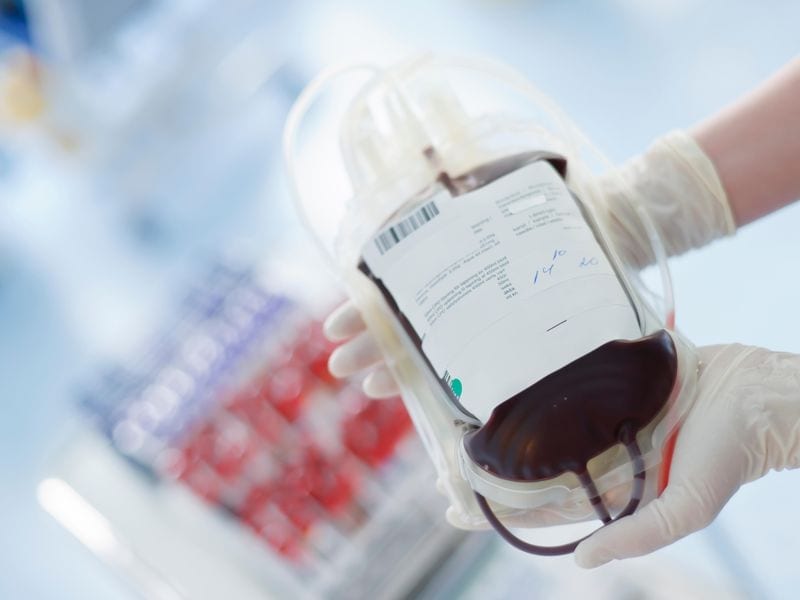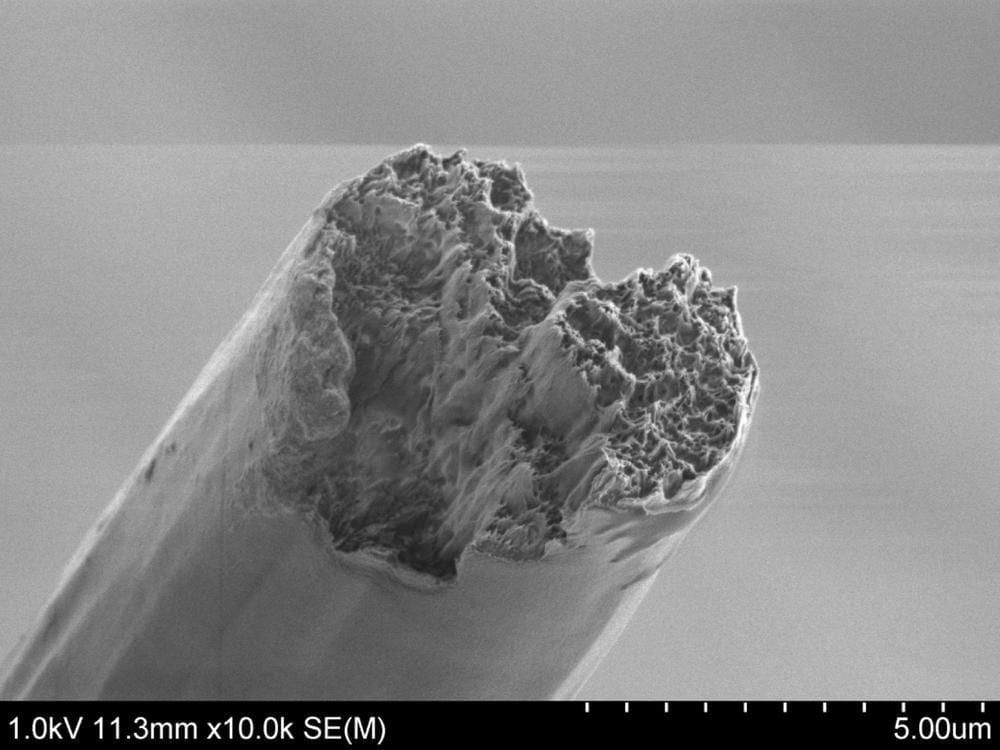
Most people are familiar with A, B, AB and O blood types, but there are hundreds of additional blood group “antigens” on red blood cells – substances that can trigger the body’s immune response – that differ from person to person. Each year, up to 16 deaths reported to the Federal Drug Administration are attributed to mismatches in red blood cell antigens that are not related to differences in A, B and O blood groups. Currently, no method is available that can determine all blood antigens. But as whole genome sequencing becomes routine for patients, it may be possible to modernize therapy by identifying both rare donors and at-risk recipients before blood transfusions.
In a new study, investigators from Brigham and Women’s Hospital and Harvard Medical School, as well as from the New York Blood Center have leveraged the MedSeq Project – the first randomized trial of whole genome sequencing in healthy adults – to develop and validate a computer program that can comprehensively and cost-effectively determine differences in individuals’ blood types with more than 99 percent accuracy. The team’s results are reported in The Lancet Haematology.
“Blood transfusion complications are common in patients needing chronic transfusion, but with current technology it is not cost effective to do blood typing for all antigens,” said first author William Lane, MD, PhD, director of Clinical Laboratory Informatics and assistant director of the Tissue Typing Laboratory in the BWH Department of Pathology. “But the algorithm we have developed can be applied to type everyone for all relevant blood groups at a low cost once sequencing is obtained.”
Blood transfusions are one of the most common procedures in medicine with more than 11 million units of blood transfused in the U.S. each year. Complications from blood transfusions can be life-threatening. When the body encounters foreign antigens on the donor cells, it can stimulate production of antibodies that can destroy the transfused donor cells. From birth, people have antibodies unique to their ABO blood type, but other antibodies against specific blood antigens can be stimulated during pregnancy from exposure to fetal cells or exposure to donor cells when receiving multiple blood transfusions.
“This approach has the potential to be one of the first routine clinical uses of genomics for medical care for patients needing blood transfusion,” said co-first author Connie M. Westhoff, PhD, at the New York Blood Center. “It could prevent serious or even fatal complications because once patients are sensitized they have a life-long risk of hemolytic transfusion reactions if blood transfusion is needed in an emergency.”
Today, most testing for blood donors and patients include only ABO and Rh matching, but more than 300 red blood cell antigens and 33 platelet antigens are known. To create a way to cost-effectively type many people for these antigens, Lane teamed up with scientists directing the MedSeq Project and experts in blood group genetics at the New York Blood Center to build a database and develop a computer software algorithm, known as bloodTyper, that could rapidly and accurately predict an individual’s blood group antigen profile from genomic sequences. Lane, Westhoff and colleagues validated the software by comparing it to traditional, and more labor-intensive, methods. bloodTyper was more than 99 percent accurate when typing from the MedSeq Project participants’ genomes. Lane notes that this work would not have been possible without access to samples from the MedSeq Project, and close collaboration with MedSeq’s principal investigator, Robert Green, MD, MPH, and co-investigator, Heidi Rehm, PhD.
“This report demonstrates a previously unanticipated use case and benefit that will accrue as whole genome sequencing become a routine part of medical care,” said Green, one of the senior authors on the study, director of the Genomes2People Research Program at BWH and professor of medicine at Harvard Medical School. “Genome sequencing can now identify potential transfusion recipients who need rare blood types and the individuals who can safely provide them.”
Learn more: New Era for Blood Transfusions through Genome Sequencing
The Latest on: Whole genome sequencing
[google_news title=”” keyword=”whole genome sequencing” num_posts=”10″ blurb_length=”0″ show_thumb=”left”]
via Google News
The Latest on: Whole genome sequencing
- BioAro Announces a Medical and Computing Breakthrough by Launching the 'World's Fastest' Real-Time Genomic Software 'PanOmiQ'on April 29, 2024 at 11:17 pm
BioAro, a pioneer in genomic research and technology, is set to officially launch PanOmiQ, a revolutionary software that will redefine ...
- GeneDx Reports First Quarter 2024 Financial Results and Business Highlightson April 29, 2024 at 1:19 pm
Reported first quarter 2024 revenue from continuing operations1 of $61.5M with 96% year-over-year growth of exome and genome test revenue ...
- Advancing mei (Prunus mume) breeding: Genomic insights into ornamental and cold resistance traitson April 25, 2024 at 10:22 am
A research team has provided an overview for understanding the genetic basis of ornamental and cold resistance traits in Mei (Prunus mume), a tree valued both for its ornamental and cultural ...
- Merck introduces Aptegra CHO genetic stability assay for accelerated biosafety testingon April 23, 2024 at 10:41 am
Merck, a leading science and technology company, has launched the first all-in-one, validated genetic stability assay of its kind.
- Evidence Supports Sequencing As First-Line Rare Disease Diagnosticon April 17, 2024 at 8:29 pm
Originally published on Illumina News Center A recent literature review, published in the Nature journal Genomic Medicine , showed that sh ...
- This butterfly hybrid thrived against evolutionary oddson April 17, 2024 at 8:00 am
New research into one butterfly genus found in the Amazon shows just how entangled those evolutionary lines may be. Hybrids between some species can produce new butterfly species that are genetically ...
- The Largest Whole-genome Sequencing Study in Canceron April 17, 2024 at 7:46 am
Comprehensive genome sequencing of 13,880 tumors revealed somatic and germline mutations that could influence patient treatment and prognosis.
- Whole genome sequencing could be key to detecting drug-resistant TB, shows studyon April 17, 2024 at 5:33 am
India faces challenges because of low investment in public health programs, high endemicity in difficult-to-reach locations, and persisting diagnostic gaps.
- The $100 Genome: Where’s the Limit?on April 17, 2024 at 1:28 am
In this feature, we explore the timeline of decreasing sequencing costs, the $100 genome, and where we’re going.
via Bing News










